Sleep Routine & Autism: A Father’s Guide to Restful Nights and Calmer Bedtimes
Short Description: Helpful resources on sleep training, nighttime routines, and visual bedtime charts that make sleep easier for autistic children and their families.
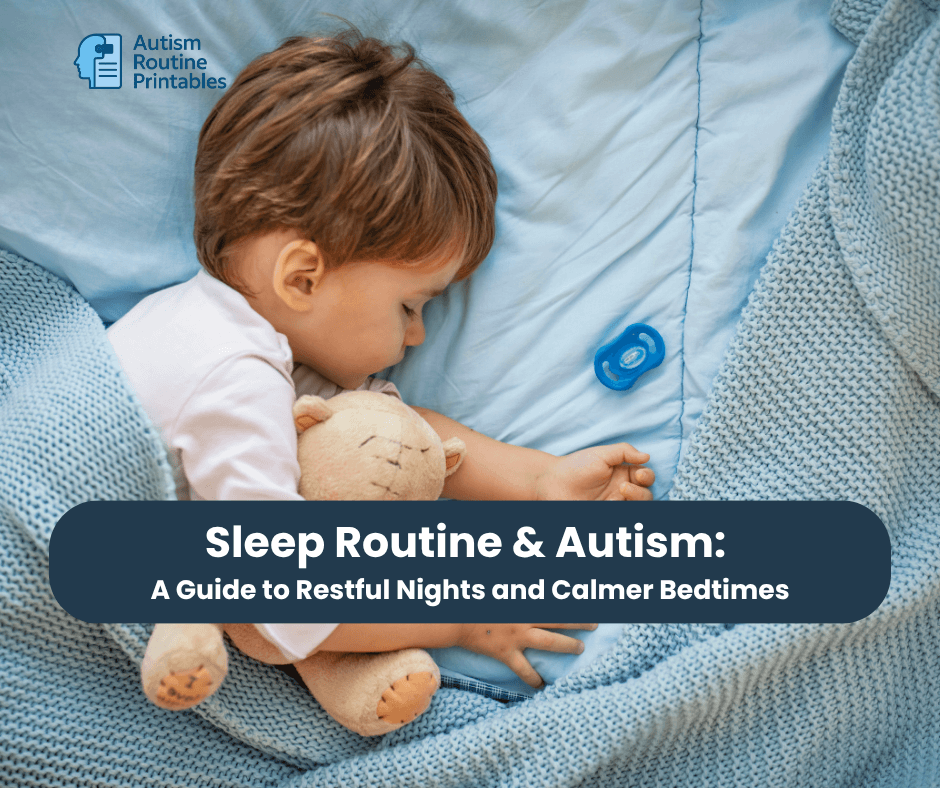
Sleep. Something so simple, yet in our house, it used to feel impossible.
As a dad to an autistic child, I can tell you firsthand — getting through bedtime without tears (from him or me) was a rare victory. Some nights, it took hours. Some nights he didn’t sleep at all. And almost every morning, we woke up exhausted and overwhelmed.
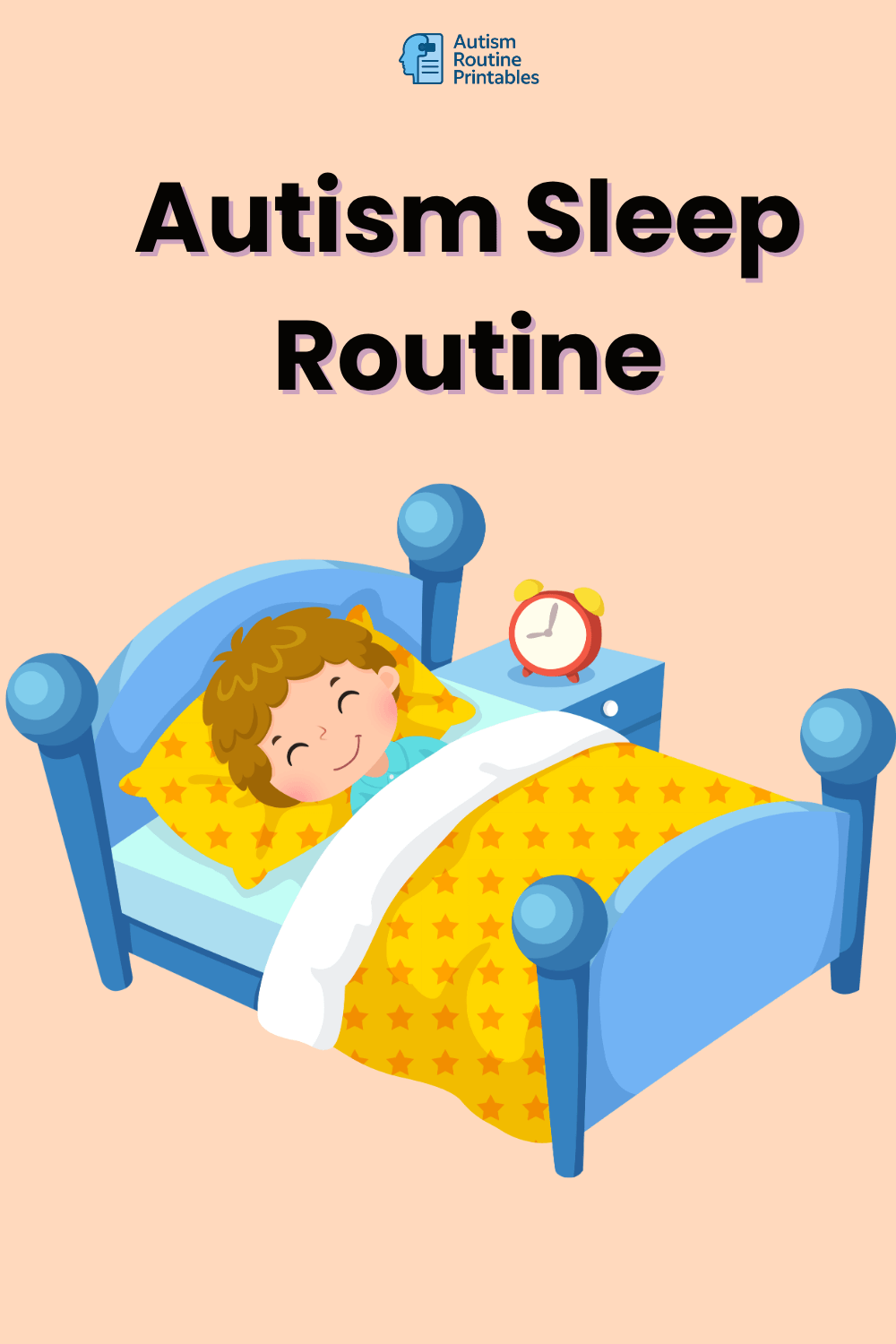
If you’re reading this and saying, “My autistic child won’t sleep alone,” or “Why won’t my toddler stay asleep?” — trust me, I get it. This blog is not just a list of ideas — it’s a father’s honest look at the challenges of autism and sleep, and what has actually helped us.
Autism and Sleep Issues in Toddlers
Toddlers are already tricky sleepers — now add autism to the mix, and things get even more complex.
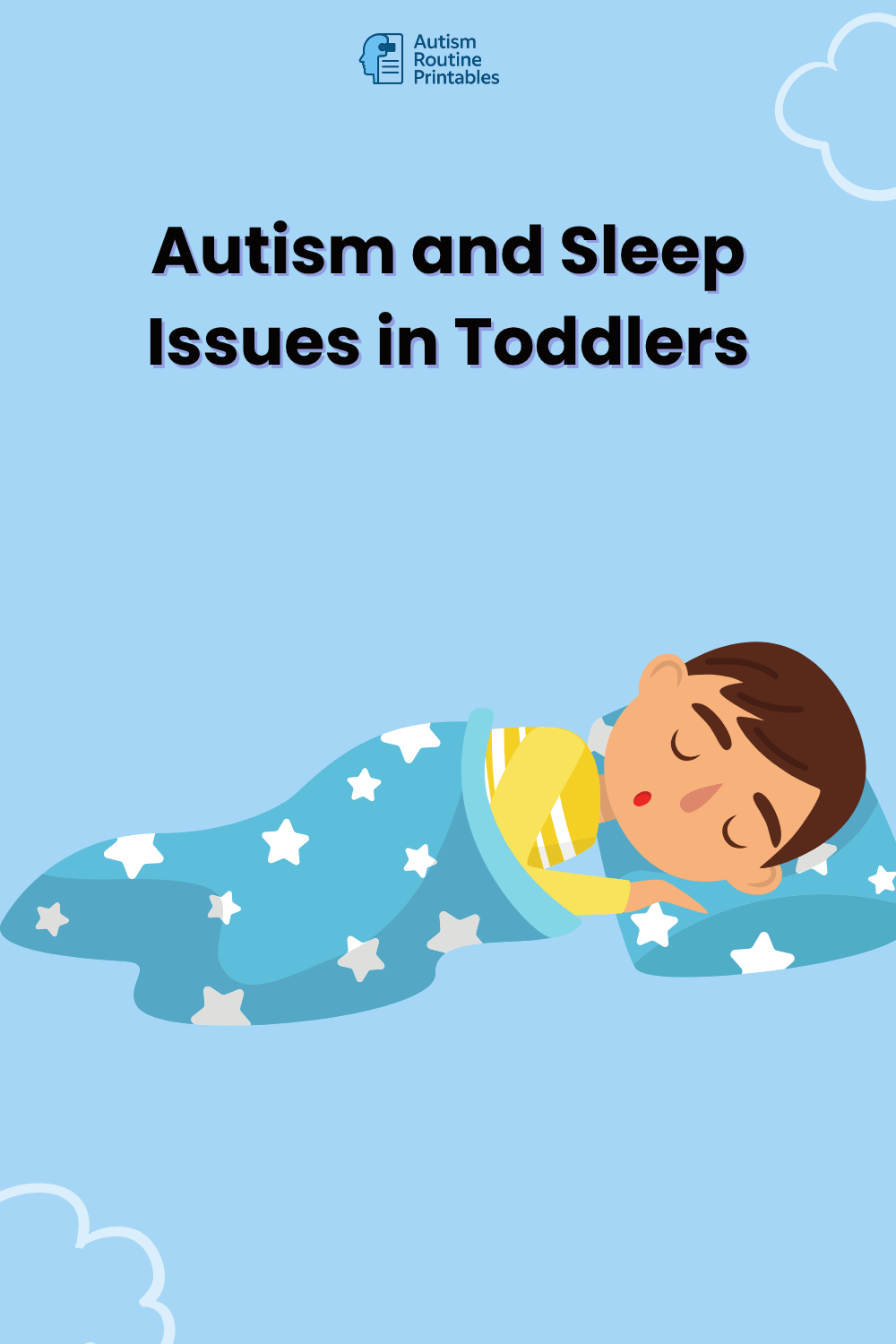
We saw signs like:
- Taking 1–2 hours to fall asleep
- Waking up multiple times a night
- Wanting to co-sleep every night
- Meltdowns when the lights turned off
- Getting up at 3am and staying awake till morning
These are common autism and sleep issues in toddlers. Their bodies often don’t produce melatonin properly, their minds take longer to wind down, and routines feel like a life jacket in a sea of chaos.
But here’s the good news: There is hope, and progress is possible — even if it’s slow.
How to Get an Autistic Child to Sleep Through the Night
We tried everything — and I mean everything. Nightlights, weighted blankets, storytime, essential oils, even sleeping next to his crib.
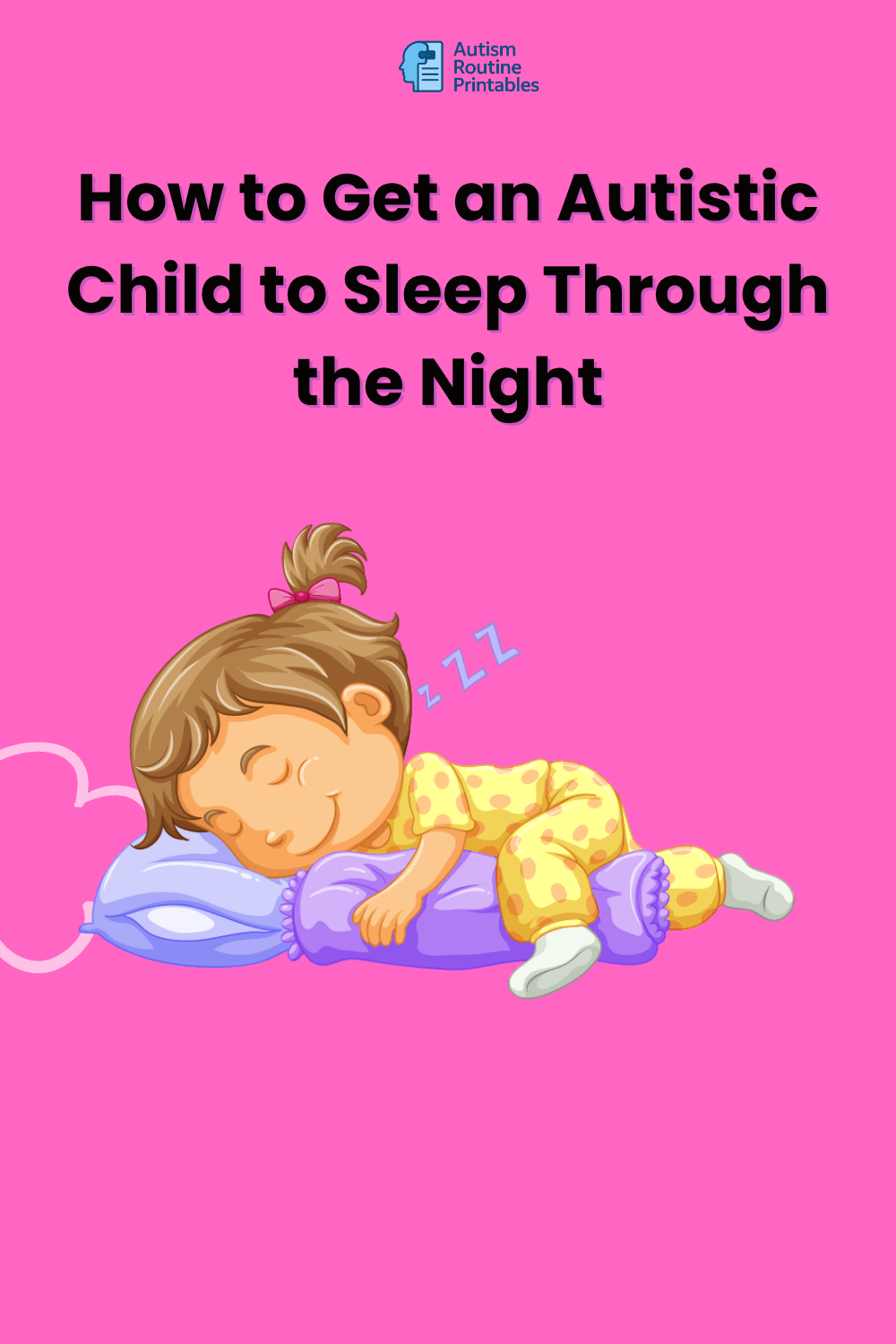
What finally helped was a combination of structure, sensory tools, and patience.
Here’s what worked for us:
- Visual Bedtime Schedule
- Picture cards showing each step: bath → pajamas → brush teeth → book → lights off.
- This made him feel secure — he knew what came next.
- Same Routine, Every Night
- We do the same steps at the same time. No skipping. No surprises.
- White Noise Machine
- Blocks out sudden noises and gives a constant calming sound.
- Weighted Blanket
- Gave him a sense of deep pressure — almost like a big hug.
- Dim lights after dinner
- Helps the brain start winding down.
We still have rough nights, but now he sleeps through the night more than he doesn’t — and that’s a huge win.
Best Sleep Aid for Autistic Child (That Actually Helped Us)
There are many options out there, but not all kids respond the same. We tried melatonin gummies, warm baths, lavender oil, and breathing exercises.
Our personal list of best sleep aids for autistic children:
- Low-dose melatonin (doctor-approved)
- Epsom salt baths before bed
- Chewelry or sensory chew necklaces before bed to reduce anxiety
- Deep pressure massage (5 minutes before bed)
- Visual chart with a “bedtime reward” (like a sticker chart)
But even with aids, consistency is the real magic. No screen time an hour before bed. No sugar in the evening. And always ending the night on a calm note.
Autistic Child Won’t Sleep Alone – What Helped
There was a time our son would cry hysterically the moment we left the room. He needed us there to feel safe. And while some people said we were “spoiling” him, I’ve learned something important:
It’s not spoiling — it’s supporting.
He wasn’t being manipulative. He was scared.
We gradually helped him sleep alone by:
- Sitting next to the bed at first
- Then moving to the doorway after a week
- Eventually stepping out after “5-minute check-ins”
- Leaving a comfort object (like his favorite stuffed animal)
- Using a voice recording of me saying “Goodnight, I’m proud of you.”
It wasn’t fast. But it was gentle. And it worked.
Autism Sleep Regression: Why It Happens
Just when things start to improve — boom, it hits.
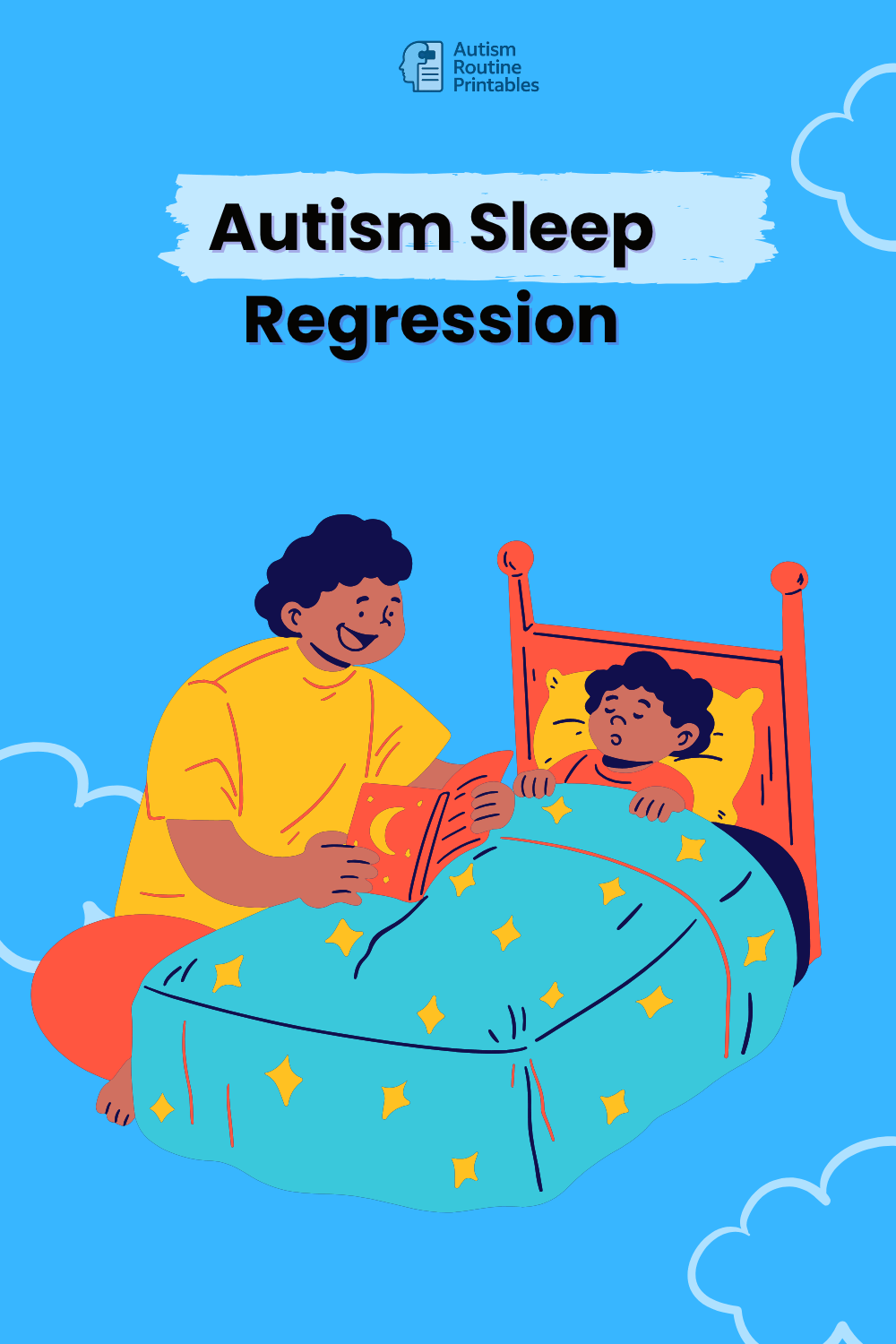
Autism sleep regression is real. We saw it during:
- Growth spurts
- Change in routines (like starting school)
- Illness or sensory overload
- Emotional stress (even good changes can be stressful!)
The trick is to not panic or throw away the whole routine. Just double down on what works — and add more calming input before bed.
Natural Sleep Aids for Autistic Child
If you want to avoid medication or supplements, I completely understand. We focused on natural sleep support for months before trying melatonin.
Here are gentle, natural sleep aids that helped:
- Chamomile tea (cooled, small amount, with doctor’s OK)
- Lavender oil on a stuffed toy or pillowcase
- Deep pressure brushing before bedtime (Wilbarger protocol)
- Cuddles and bedtime storybooks with low voices
- Gentle stretching or child’s yoga poses
The goal isn’t to knock them out — it’s to help their nervous system feel safe and slow down.
Autism and Sleeping Too Much (Or Not Enough)
Some kids on the spectrum don’t sleep at all. Others sleep too much.
Our son went through a phase where he was sleeping 13–14 hours a day and still seemed tired. At first, I thought it was great — until I realized it was shutdown from sensory overload.
If your child is:
- Sleeping all day and struggling to wake
- Still tired after long sleep
- Using sleep to escape overwhelming feelings
…it might be worth talking to your pediatrician or neurologist. Sometimes it’s the body’s way of coping with too much.
Autism Sleep Problems in Adults
Sleep doesn’t magically fix itself in adulthood.
My cousin (who wasn’t diagnosed until his 30s) still struggles with sleep. He’s either wide awake at 2am or so exhausted he can’t move. Autism sleep problems in adults are often caused by anxiety, sensory sensitivity, or even trauma from years of being misunderstood.
Things that helped him:
- Weighted blankets
- Sleep tracking apps
- Blue light blocking glasses
- Strict no-screen policy an hour before bed
- Journaling before sleep to empty the mind
If you’re an adult on the spectrum or suspect you might be — don’t be ashamed. Sleep is health, and you deserve peace too.
Final Thoughts: One Night at a Time
As a father who’s been through so many sleepless nights, let me tell you this:
You’re not failing.
You’re not alone.
And your child isn’t broken.
They’re just wired differently — and with the right support, they can sleep, grow, and thrive.
It might take a while. There may be setbacks. But every small improvement matters. Every night they sleep an extra hour is a step forward.
So give yourself credit. You’re doing something incredibly hard, and you’re still showing up. That makes you a hero in my book.
Want free bedtime chart printables, sensory sleep tools, or a PDF guide to visual routines? Visit [Your Blog Name] — made by a parent, for parents.
Mi vel morbi tristique adipiscing magna tristique porttitor quis vel elementum amet commodo diam hendrerit odio sit cras vel vel arcu semper tellus sapien morbi sit iaculis amet mauris tellus velit donec ipsum rhoncus fusce in volutpat congue quis pharetra.
Donec molestie enim vitae id tempus etiam malesuada consectetur eget aenean purus lacus, nunc ipsum tincidunt fermentum viverra et massa etiam in a mi dui sed sed sit est at magnis nam amet risus sed non ut malesuada sed congue cras urna feugiat cras purus, eget mauris purus tristique leo nisl, donec elit eget blandit arcu aliquam libero faucibus turpis dignissim donec magnis tincidunt.
Rhoncus ut nibh tellus felis, aliquet risus risus commodo, metus suscipit dui libero cras molestie curabitur mattis ut praesent nulla rhoncus tempor vestibulum mattis tempus feugiat et mollis nibh dui, sed sollicitudin.
Sed rhoncus ultricies
A est adipiscing duis lacus turpis faucibus urna a, tincidunt sit enim nisl mauris in pellentesque hendrerit egestas faucibus amet eu amet velit nulla magna nulla cursus mi aliquam ac eu sagittis.

